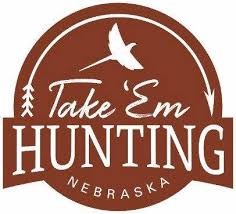One of the most amazing experiences in the hunting lifestyle is taking a new hunter to the field repetitively. I have mentored new hunters for some time and encourage any of you who hunt to join our cadre.
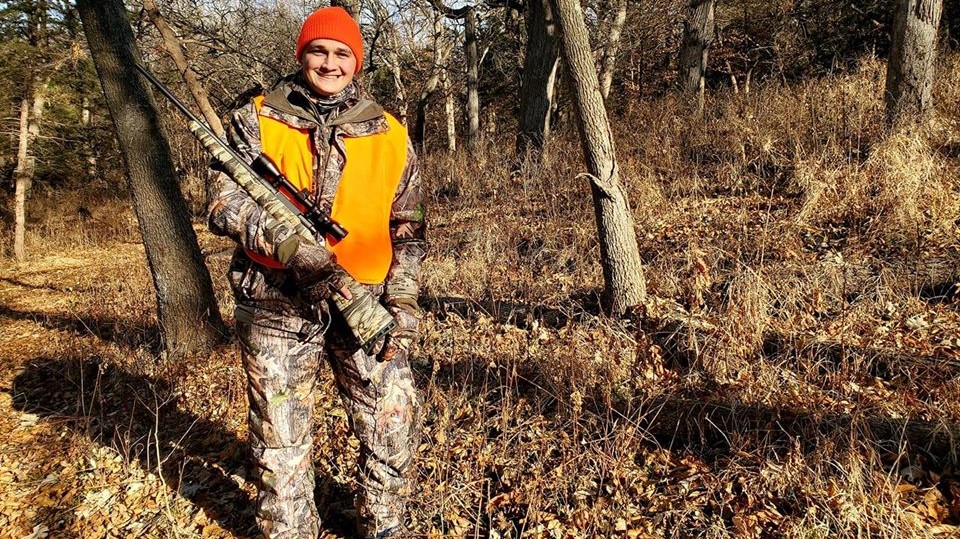
Coaching apprentice hunters should start with our own family or friend networks, however, be on the lookout for aspiring hunters in all sorts of unexpected places. It is now vital to reach out to new and different audiences who are eager to hunt.
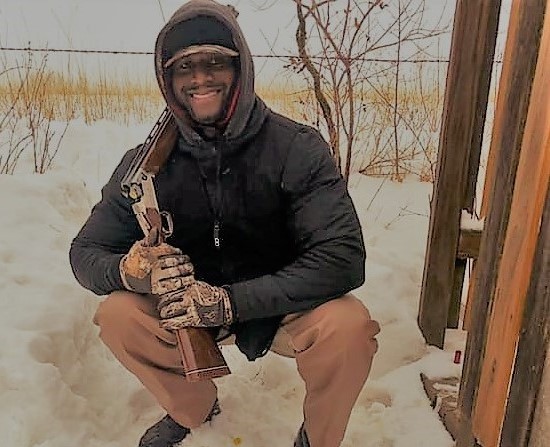
Interestingly, there are more incentives than ever before to get you, an avid hunter, to take a new hunter to the field. Consider entering our exciting, 2nd year Take ‘Em Hunting Challenge! It starts on Sept. 1. Get all the details about the challenge here.
Unquestionably, taking a newcomer to the field should be a top priority for each of us who hunt! It not only represents an investment in the future of our hunting heritage and conservation of our natural resources, but you’ll discover that it is more rewarding than you could ever, ever imagine.
It will change your attitude and approach to hunting and make you a better all-around hunter. After all, I have always said that it is more enjoyable to be a guide for a beginning hunter than it is for me, the veteran hunter, to bag a game bird or check in a big game animal!
Aaron Hershberger, Outdoor Education Specialist with the Nebraska Game and Parks Commission, puts it this way: “If you want to truly reignite your passion for the hunt – take someone new. Seeing the excitement in their wide-eyes for all the things that go into it, really makes you realize how powerful the chase and special the opportunity to hunt is.”
Remember, for a new hunter, the initial days spent afield hunting are critical. The whole experience needs to go well. If there is frustration, the novice hunter will not want to return. So, there are some key things to know to ensure the hunting trip goes well for the newcomer.
Here are the things to know when you’re planning to take that new hunter to the field.
– Involve the newcomers in the entire process. It is important for new hunters to understand the process of the hunt from beginning to end. It starts with checking requirements and regulations and goes to organizing gear and target shooting and wraps up with cleaning, cooking and eating the healthy quarry. Encourage your new hunter to share their flavorful wild game meat entrees with others!
– Let the new hunter make decisions (even if they may not succeed). Let the new hunter make decisions even they may not succeed. Hunting coaches need to approach the experience like they are creating a new hunter for the days and seasons ahead. Encourage the new hunters to help make decisions with where to hunt, place to hide, how to set decoys or when to call or how to walk a field. Allow them to see themselves as a valued part of a hunting team and not simply as an individual just being taken out on a hunt.
– Wear the right clothing, take note of other items. Novice hunters must be comfortable in the field and the appropriate clothing for the weather is a must. The layering technique is best, and don’t forget the blaze orange to be seen! Also, take note of other items that make the hunting experience cozier such as hand warmers, foot warmers and portable propane heaters, if applicable.
– Don’t forget the binocs. Oh yeah, one piece of equipment that helps keep new hunters focused and occupied while hunting is the use of binoculars or other similar optics. Encourage them to continually scan field and woodland edges for movement of game.
– Have your own snacks and drinks. I cannot stress to you how essential it is for the hunting coach and newcomer to pack their own snacks (and quieter ones at that) plus bring some water on the hunting adventure. A couple of sandwiches, some soft granola bars or fruit along with a few bottles of water would be recommended. Nothing though beats a thermos of hot chocolate on a cold day!
– Allow the mobile device. It is no secret that many of us, especially younger folks, love technology. Let your tenderfoots tote their Android or iPhone on the hunt. Allow them to use that mobile device to highlight and share the experiences of being in the field with photos and videos posted on social media sites.
– Bring a hunting buddy and your own gun or bow, or not? As for leaving your buddy and gun or bow at home, every case is different for both the experienced hunter and novice. When hunters begin they want to be part of something, a team. They prefer to not be the only one actually hunting or shooting. Why? Relate it to the thought that the only thing louder than 95,000 screaming football fans in UN-L’s Memorial Stadium in Lincoln , NE is when the same 95,000 fans go silent and you realize all eyes are on you! There is pressure!
– Pack your patience, no competition, be positive and make it a good time. Remember to be patient, not make hunting a competitive thing or put pressure on killing an animal. Accent the positives and above all keep the mood lighthearted — make it fun, make it social! I like to let new hunters blow game calls (e.g. waterfowl, deer) or scratch a turkey call. Additionally, Nebraska’s Controlled Shooting Areas or hunting preserves are excellent places for starter upland game bird hunts.
– Talk to the landowners. I always make it a point to have new hunters visit with landowners, especially in Nebraska where 97 percent of our land is under private ownership. I’ve even gone as far as to prearrange to have beginner hunters knock on doors and ask individual landowners for permission to hunt while socially distancing!
– Stress safety. Whether it’s muzzle control, unloading the shotgun before crossing fences, knowing the appropriate ‘zones of fire,’ and double checking the target and background before firing a shot, safety should always be paramount and constantly stressed! Regarding pheasant hunting, instruct newcomers not to shoot until the “rooster” command is given.
– Adhere to COVID-19 prevention guidelines. Coaching a young hunter can still work fine adhering to strict COVID-19 prevention guidelines. Utilize approved face masks when in close contact with each other and carry a small bottle of hand sanitizer, mandating its use. Avoid sharing snacks, calls and other items. See below for more information about COVID-19 and hunting.
– Teach and preach conservation. Make certain your novice hunters understand why you’re planning to hunt in a certain area and point out the importance of having proper habitat. We are here in this location to target this game animal or bird at this time of day because of these key habitat components: ______, ______, ______ and ______.
– Play a fun ID game. Anyone new to hunting needs to comprehend the connections in nature as well as the role that nongame wildlife species play. It will help with success. One thing that my kids and I have always done is to enjoy a fun game of wildlife ID when our game species aren’t being seen. Whether it is plants, birds, mammals or even rocks, we try to assign points for what’s positively identified with a specific app, field guide or ID booklet.
– Include a ground blind, plus a small rug and shooting sticks. Forgiving on movement, protection from inclement weather and having that fortress-like feel, new hunters, particularly kids, love and appreciate being in portable, camouflage ground blinds while hunting. Along with the ground blind, it’s also a good idea to carry and utilize a small lightweight rug, perhaps a 6-foot by 6-foot piece of material to cover the floor of your blind to help curb sound, spot crawling insects and provide additional warmth. It is also critical to include a pair of shooting sticks to assist that new hunter with having a solid, sturdy rest to set that firearm or crossbow before a shot is taken.
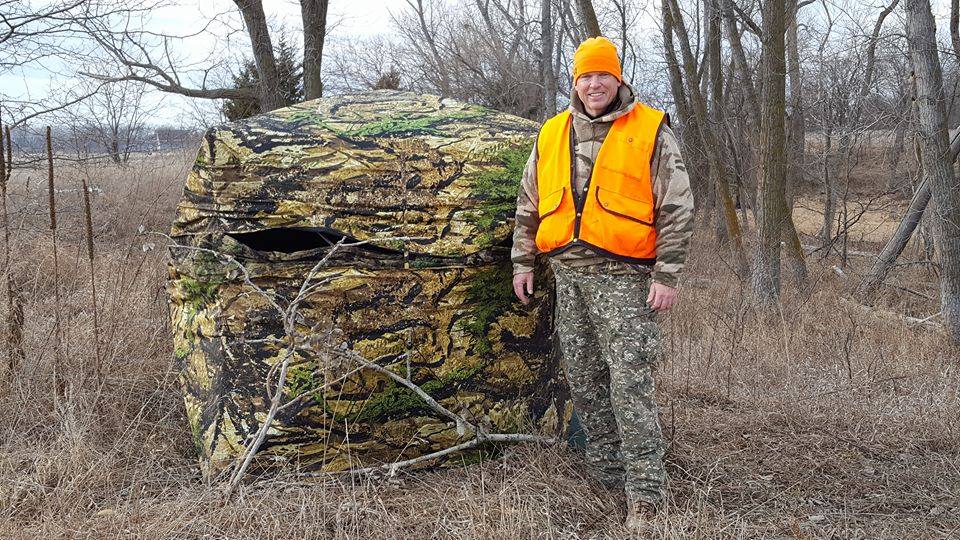
– Go with a dog. If you have access to a well-trained, seasoned hunting dog for upland game or waterfowl hunting, use it! Good hunting dogs can be found on Nebraska’s licensed Controlled Shooting Areas or pay hunting preserves for pheasants and chukars. An effective hunting dog will give a novice hunter time to prepare for the shot and find downed birds in heavy cover or water. More importantly, there is something quite special about intently watching a good dog work. The real joy comes with the amiable interaction between hunters and dogs!
– Stop a lot. If you don’t have a dog for pheasant and quail hunting, walk very slowly and try stopping and standing still on a regular basis with new hunters. This tactic will give your newbies a chance to catch their breath and often makes rooster pheasants nervous causing them to flush for a shot.
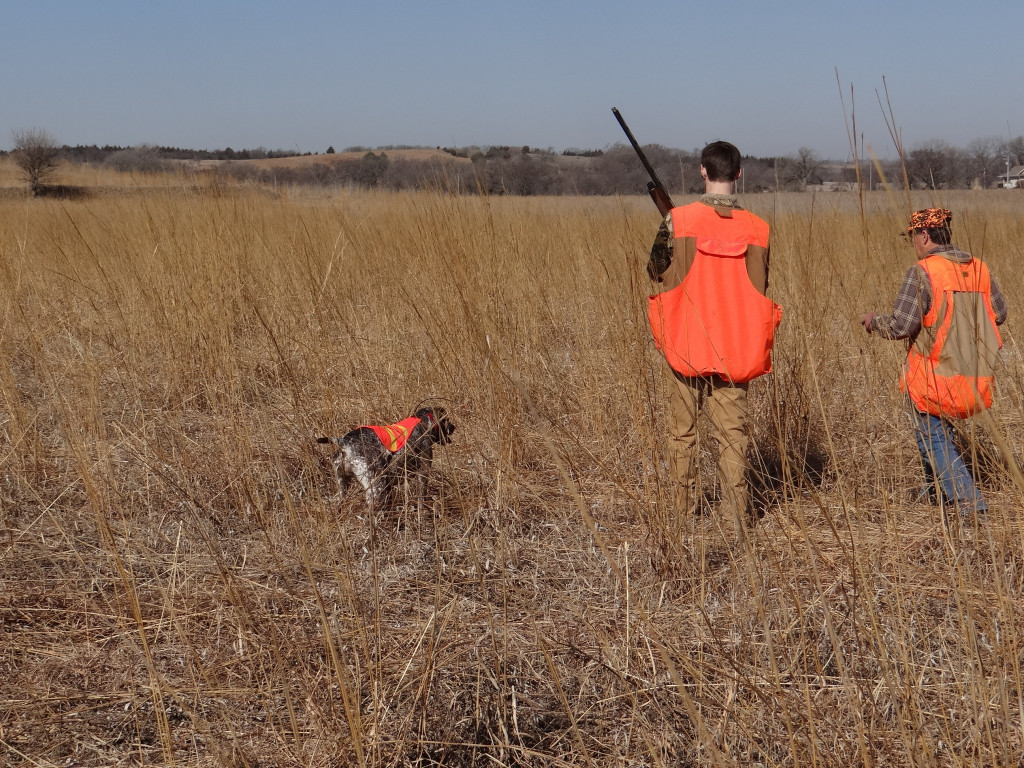
– Keep the session short. If your kids or beginner hunters have complained about not being in the field for a long enough time to pursue game, you’ve done your job! Don’t wear them out! Keep them hungry to come back for another hunting session!
– Take the hunt from field to fork. Many new adult hunters are very interested in the entire process hunting presents from being in the field and harvesting game to preparing it for the dinner table and dining on it. Making a good meal together with the game taken and enjoying a delicious harvest is the culmination of a great hunt. Chances are fixing and eating a wild game meal will solidify the decision to continue to hunt above all others.
– Those memorable silly stories. Crazy hunting stories are never forgotten, even the minor details cling to the memories of first-time hunters through the years. Perhaps it was the time they stepped out of the deer hunting blind in the woods to take a bathroom break and stretch only to see the biggest white-tailed deer buck of their life staring at them from less than 25 yards away!
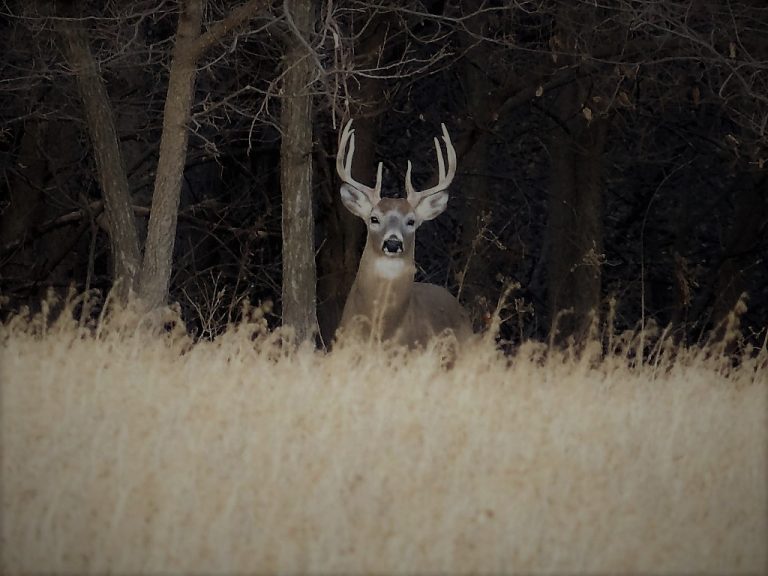
“Creating a new hunting partner is a process,” says Jeff Rawlinson, Education Manager in the Communications Division of the Nebraska Game and Parks Commission. “Following these tips will ensure you initiate this process in a manner that will give you the best chance at success … A return hunt!”
Happy hunting with your newcomers!
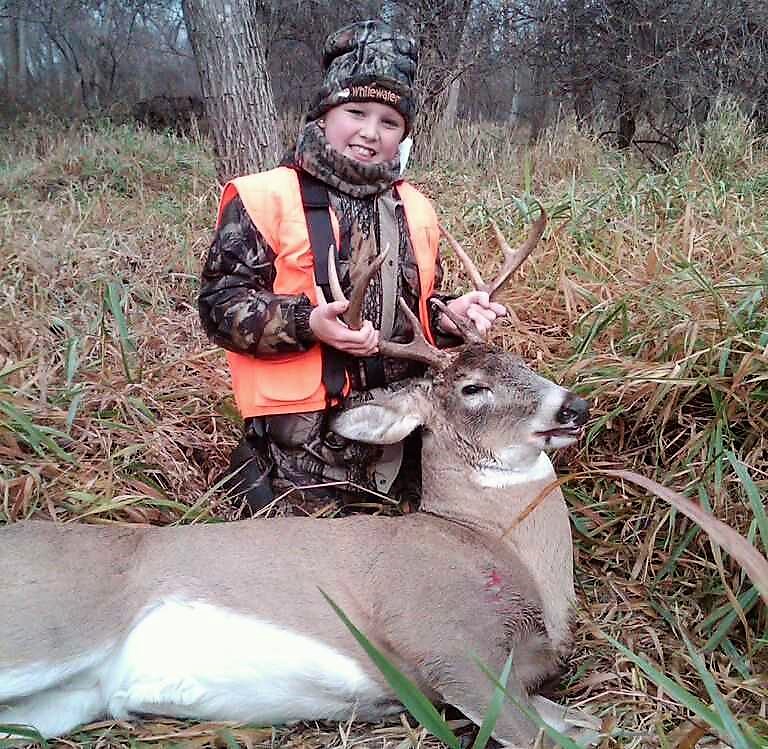
Hunting During the COVID-19 Outbreak
- If you choose to hunt during the pandemic it is essential that you follow local, regional or state health restrictions and CDC health guidelines.
- Purchase your hunting permits online at OutdoorNebraska.gov instead of in-person.
- Hunt alone or with family members in your household or with those that are isolating.
- Do not hunt if you feel sick or think you might be sick.
- Stay at home when you are sick, except to get medical care.
- Wash your hands regularly with soap and water for 20 seconds or use an alcohol-based hand sanitizer even while afield or afloat.
- Do not share equipment with anyone, and wash or properly disinfect your equipment when you’re done.
- Stay at least 6 feet away from other hunters you encounter. If access points or other places have a lot of other hunters present, avoid them.
- Carry an approved face mask for possible use.
- Try to hunt near home as much as possible and don’t travel long distances.
- For additional COVID-19 health information and updates, go online to OutdoorNebraska.gov
The post Things To Know When Coaching A New Hunter appeared first on Nebraskaland Magazine.


